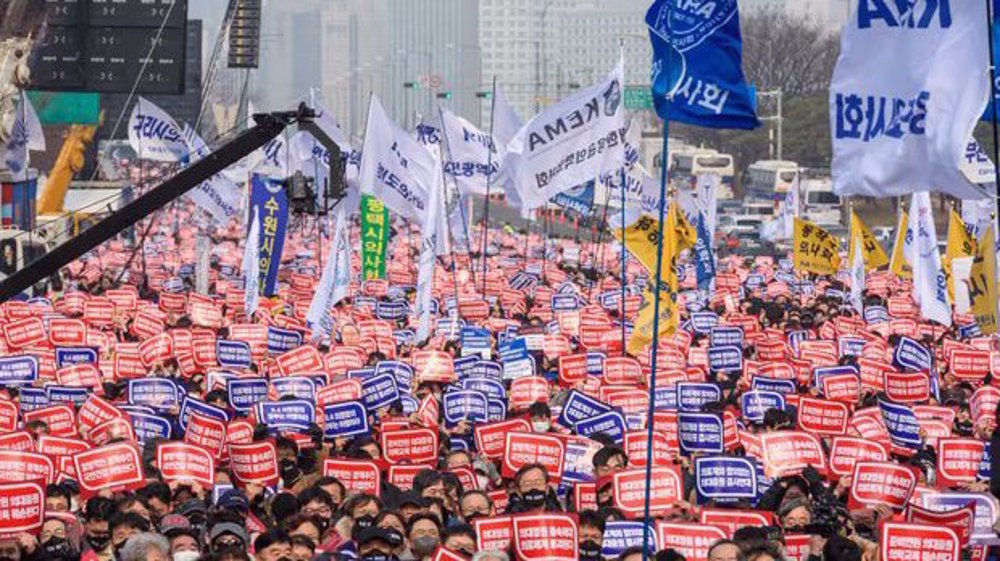South Korea’s health minister has expressed concern over a potential danger posed to patients’ lives, after medical professors indicated they may support the striking junior doctors, who have been engaged in a three-week walkout.
Cho Kyoo-hong on Tuesday urged professors, who are also senior doctors in many hospitals, to help their striking colleagues return to work, and not join them in the strike, which has resulted in a state of chaos within the healthcare system.
“I express serious concern over the decision,” Kyoo-hong was quoted as saying. “It will pose a threat to health and lives of patients,” he added.
On February 20, numerous medical trainees staged a walkout to oppose the government’s proposal of significantly increasing the number of doctors in order to address shortages amid South Korea’s rapidly aging population.
Medical professionals argue that the move will negatively impact the quality of service provided. In response, the government has demanded that the medics resume work or face legal consequences.
It has additionally taken steps to revoke the medical licenses of those who refuse to comply, while offering incentives and establishing a support hotline for those who choose to defy the strike.
On Monday, professors from a prestigious medical school announced their collective resignation scheduled for next week unless the government presents a “reasonable breakthrough” to resolve the ongoing conflict.
Meanwhile, the Medical Professors Association of Korea stated on Tuesday that the senior doctors are diligently working to assist hospitals in providing essential services despite the work stoppages.
They expressed their hope for a swift resolution to the conflict, but cautioned that if the government does not engage in talks unconditionally, more doctors may join the strike.
To alleviate the situation, Seoul has deployed military medics and allocated millions of dollars from state reserves.
In an effort to address the low doctor-to-population ratios compared to other developed nations, the government is also aiming to increase the annual admission of medical students by 2,000 starting next year.
While doctors express concerns about the potential decline in service quality and medical education due to the reform, proponents argue that the doctors are primarily safeguarding their salaries and social status.
Under South Korean law, striking is prohibited for doctors.




